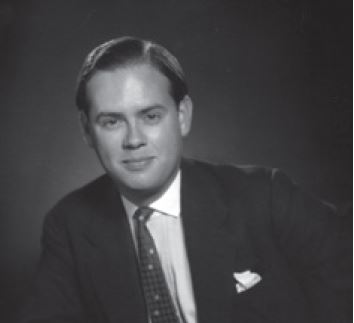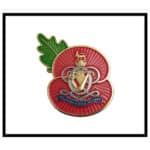David, who died on 29 September at the age of 70 had been unwell for some time. Maj Richard Roffey’s father and David’s father were friends, both being engaged in the tea trade in India, so David came to The 8th Hussars after Sherborne.

He was one of that band of National Service officers who enriched the life of the Regiment and of the Officers’ Mess and gave invaluable service.
The Regiment had recently returned from Korea and David joined ‘B’ Squadron as a troop leader in Luneburg in October 1952 under the command of Maj George Strachan. David’s troop sergeant was the celebrated Paddy Neely.
On one exercise David’s troop of tanks suddenly stopped, bringing the whole brigade advance to a halt under the eyes of the brigadier while the troop sergeant appeared in the tank turret with a rifle, and was seen to shoot a hare, dismount from his tank and retrieve the hare before David was able to get his troop moving again and continue the advance. The troop was always provided with fresh game when on exercises in the field.
On one occasion while the squadron was being inspected by the Army Commander, he stopped and asked David what he did in civilian life. When David replied that he was a tea broker, the general immediately asked his advice about various teas and their qualities as he was about to sign a contract for the bulk order of Naafi tea for the army for the coming year.
After his regular service and until the amalgamation David joined the reserve for the annual two weeks training including one memorable tour in Denmark with the Danish army.
David was born into the tea trade and after his army service, he returned to his father’s and grandfather’s firm of tea brokers in the City of London. He also travelled across India and Ceylon learning about the qualities and manufacture of every estate mark, notably in Assam and the High Range.
This apprenticeship, together with his later travels in Africa, South America and then the USSR gave him an outstanding knowledge of the world’s teas.
It was this expertise and his genuine love of the tea industry and the people working in it that kept him in business during the decades of the later twentieth century when the tea trade had altered out of all recognition.
When he joined it, the tea trade was an expert but gentlemanly business with a vital role for the knowledgeable merchant. He liked to be smartly and appropriately dressed and would go to work in his suit with a bowler hat and furled umbrella.
Latterly the tea trade became a global, multinational enterprise in which the giants ruled but David, with his specialised knowledge was able to keep his company afloat even after the Chernobyl disaster wiped out his staple Russian business.
Outside his business life, David was best known for his love of the game of golf which he pursued at the Royal Ashdown Forest club where he represented the club at the Royal Durban Golf Club centenary in 1992 and regularly at The Hague whose exchange trips he organised for some years.
His membership of the Royal Ashdown culminated in one of the proudest periods of his life when he was made captain of the club between 1989 and 1990. He organised golfing holidays in Portugal during the 1980s and 1990s and also attended the formal matches organised by the many golfing societies of which he was a member or for whom he played such as the Ceylon, Oriental Club, and Grocers’ Company, Tea Trade and Seniors.
David was a charming, sociable and generous host and as a measure of the affection in which he was held the church was packed with standing room only for his memorial service which culminated in a reading of Seaside Golf by John Betjeman.
The last four years of David’s life were a courageous battle against cancer. He was looking forward to attending the lunch to celebrate the 50th anniversary of the appointment of HRH The Prince Philip, Duke of Edinburgh as Colonel-in-Chief but it was not to be and he died a month before, surrounded by his family.



